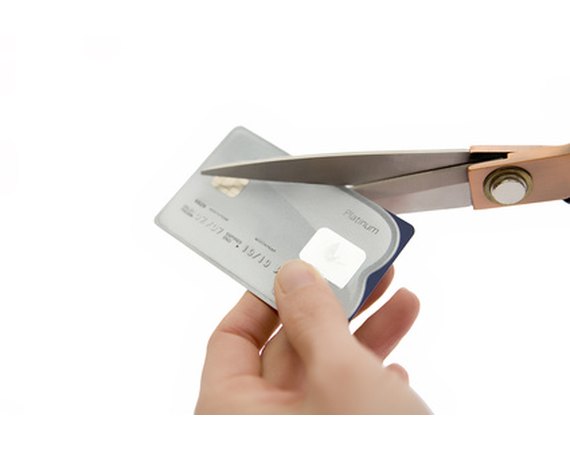
When you let your finances get away from you, or you are confronted with unexpected bills, you will need to renegotiate your budget or consider consulting a professional. Bankruptcy is another option, but this would destroy your credit rating for years. While eliminating your debt usually is a lengthy process, you can divide it into more manageable chunks without affecting your lifestyle too much.
Instructions
Budgeting
- 1
Create a budget that you must follow in order to pay off your debt.
2Write a list of your monthly expenses and tally the total amount you pay for them. Subtract that number from your monthly income.
3Note that if the result is negative, you need to eliminate some of your expenses or increase your income. You could eliminate discretionary spending, such as movies or cable television. To increase your income you could get another job, or ask for a raise at your current job. You could work more overtime. If the result is positive, you can use that excess money to pay down your debt.
Debt Management Plans
- 4
Consult a nonprofit credit counselor to help you form a budget. A third party might be stricter than you are on yourself.
5Talk to the counselor about your management goals. The counselor will take over the payments on your behalf and you will pay the counselor the fee that covers your debts. The counselor will mail the monthly checks.
6Ask your counselor to talk to lenders about lowering your interest rates. They could also reduce the balance you owe by reversing some of the fees and finance charges. You will need to remain in the program for several years as your debt is eliminated. Your counselor will keep you on a strict budget so you don't overspend.
Debt Settlement
- 7
Try to pay less than the full balance of your debts if you creditor agrees. Call your creditor and ask if you can pay less than what you owed. The New York Times reported in 2010 that creditors are willing to charge as little as 20 percent of what is originally owed. This is because when they contract out to collection agencies, they are paid pennies on the dollar. This option is sometimes available on unsecured debt, such as credit cards.
8Negotiate how much of the total balance you will pay. Twenty percent is uncommon, but 50 percent is more likely.
9Note that the Federal Trade Commission advises not to consult for-profit debt-settlement firms; they charge high fees and don't always get the results you are looking for. You should instead consult your creditor yourself.
Bankruptcy
- 10
Consult a bankruptcy attorney to file for Chapter 7 bankruptcy.
11Unsecured debt can be trashed in a few months under Chapter 7. This is the simpler of the two forms of bankruptcy.
12Talk to the lawyer about your income and assets. If you don't own real estate and your income is modest, you are more likely to be approved for Chapter 7 bankruptcy. Chapter 13 is more complex and requires about five years of payments to complete. A bankruptcy trustee will represent you to make payments to creditors.






0 comments:
Post a Comment